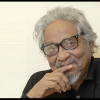Ex-Jamaat men move to float new party
A number of former leaders of the Jamaat-e-Islami have taken an initiative to form a political party that will not be based on religion.
“We believe in religious freedom of every citizen. We will not form any religion-based political party,” one of the ex-Jamaat leaders involved in the process told The Daily Star yesterday.
The leader said they would make an announcement on the initiative at a press conference today.
In recent times, differences of opinion within the Jamaat have surfaced over reforms and whether it would apologise to the nation for opposing the 1971 Liberation War.
The Jamaat, which opposed Bangladesh’s birth, had already been in trouble after its senior leaders were handed down punishment for crimes against humanity, according to its insiders. Besides, the Election Commission cancelled the party’s registration with it.
On February 15, Jamaat assistant secretary general Barrister Abdur Razzaq quit the party, citing its failure to apologise for its role in the Liberation War and bring reforms to its constitution.
The following day, Mujibur Rahman (Manju), a member of Jamaat’s policy-making body Majlish-e-Shura, who had been vocal about brining reforms to the party, was expelled from the Jamaat for “breaching discipline” and “anti-party activities”.
Mujibur, who was president of the Islami Chhatra Shibir, is now at the forefront of this new political initiative.
He is expected to announce the initiative at a press conference to be attended by a number of former leaders of the Jamaat and the Islami Chhatra Shibir.
Talking to this newspaper yesterday, Mujibur said, “We are under pressure from various quarters. Right now, I cannot give you details … We will gradually disclose the names of the people involved in the process.”
He alleged that Jamaat leaders are trying their best to thwart the new initiative.
According to Jamaat insiders, the party’s central leaders have taken measures so that no one from the party or its student wing Islami Chhatra Shibir joins the new initiative.
Seeking anonymity, a former Jamaat leader involved in the initiative said, “We will try to form a political party with those who express solidarity with our thoughts and work strategy. We will finalise through discussions the name of the organisation, its structure, work strategy, objectives and programmes.”
“We feel that a new political initiative, enthusiastic leadership and an active organisation are needed for the country,” added the leader.
Talking to The Daily Star over the phone recently, Razzaq, who has been in London since 2013, said he pushed the Jamaat leadership to apologise for the party’s role in 1971 but he was “rebuffed by a section of the top leadership”.
“In January this year, I advised the leadership of the necessity of taking responsibility for its predecessors’ role in 1971. In the absence of any better or viable alternative, I also suggested dissolving the Jamaat. But all my efforts have been unsuccessful. My advices fell on deaf ears.”
Asked about the new political initiative, he said, “As I had said earlier, I will not be directly involved in politics. But my best wishes will be with them.”

 For all latest news, follow The Daily Star's Google News channel.
For all latest news, follow The Daily Star's Google News channel. 








Comments